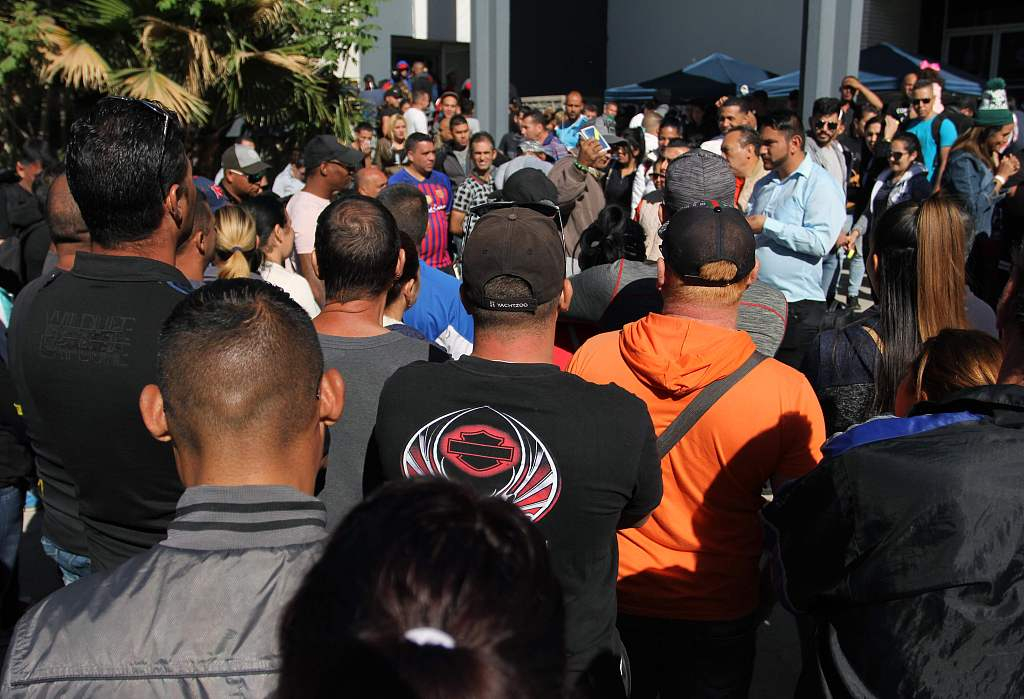The Chinese UN ambassador on Wednesday voiced hope that the United States and Cuba will continue to advance the normalization of their relations.
Zhang Jun, China's permanent representative to the United Nations, made the remarks during his speech at the UN General Assembly's plenary meeting on the necessity of ending the U.S. embargo against Cuba.
Zhang said China hopes the United States will abolish its embargo policy against Cuba as soon as possible, noting that from April 2018 to March 2019 alone, the embargo cost Cuba 2 billion U.S. dollars in foreign trade losses as well as over 700 million dollars in financial assets.
"This is contrary to the purposes and principles of the UN charter and the relevant resolutions of the UN general assembly," he said, adding "the embargo has also hampered the efforts of the Cuban people to eradicate poverty and achieve other sustainable development goals."

Cuban migrants head to the U.S. through southeastern Mexico, April 19, 2019. /VCG Photo
Cuban migrants head to the U.S. through southeastern Mexico, April 19, 2019. /VCG Photo
The two-day General Assembly meeting is expected to consider a draft resolution submitted by Cuba against the U.S.-imposed embargo.
Zhang said China will vote in favor of the draft resolution, which is likely to be adopted by an overwhelming majority as was the case over the past 27 consecutive years.
U.S.-Cuban relations have soured since President Donald Trump assumed office in 2017. Since then, the U.S. administration has partially rolled back the detente initiated by former President Barack Obama and reverted to Cold War rhetoric, while maintaining re-established diplomatic ties.
The United States first imposed an arms embargo on Cuba in 1958. The embargo was complemented by the U.S. introduction of restrictions in various other sectors, including sanctions on financial transactions, trade and travel.
Obama issued regulations to ease people-to-people contacts. But Trump toughened the blockade policy by restricting travel, boosting the economic embargo and imposing sanctions on Raul Castro, first secretary of the Central Committee of the Communist Party of Cuba.
(Cover: The U.S. Embassy in Havana, Cuba. /Reuters)
Source(s): Xinhua News Agency